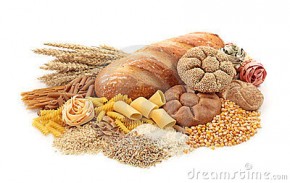Carbohydrates = ?
How often do you hear that someone is heading home for a bowl of pasta the night before a race to ‘carb load’? But is carb loading necessary for events? Particularly long ones? And what does carb loading actually mean? There is a lot of mixed information and opinions out there about carbohydrates and their role in physical activity. This information shall assist with clearing this up!
So, what does ‘Carb loading’ actually mean?
It is a strategy which is used to maximise the amount of carbohydrate available for exercise. It involves 1-4 days of tapering exercise, whilst consuming a diet that is high in carbohydrates. And this doesn’t just mean eating that bowl of pasta the night before your event; carbohydrate loading requires 7-12g per kilogram per day, eg, 60kg person needs between 420-720g/day. If you are at the higher or lower end of this intake will depend on your normal intake, body size, and ability to consume it.
What does this look like?
As an example, 10 weet bix or 4 large bananas provides 100g of carbs. That pasta we were talking about? To get 100g of carbohydrate, you will need to consume approximately 2.5 cups of pasta! When you need to consume more than 4 times this in the day, you start to realise exactly how much food this is!
But what happens if I get full?
You probably will! Being ‘full’ only becomes an issue if you begin to feel sick. Whilst having the carbohydrates available for your event is important, not feeling sick is more important. Feelings of nausea or stomach cramps are common in people who have over done it. If this is you, stop. Have a glass of water, and let your stomach settle. Remember to not use new or extra foods the first time before a race; train with the foods you plan to carb load with, and ensure you know how much your body can handle.
When is it necessary?
There is no use carbohydrate loading unnecessarily. Events longer than 90 minutes if at moderate intensity or higher are where it is most useful. For example marathon runners, cross country skiers and triathletes all benefit from carb loading.
When is it unnecessary?
Short events, eg sprints. In some sports, for example high level soccer, football where the intensity is high there is evidence that carb loading may be useful, however it is often extremely difficult to do this due to training schedules. It is also unnecessary (and incredibly difficult!) to do this for every training session. What you eat around training is important though, as discussed in my recent blog for Mind Body Motion.
Key points to remember:
-‘Carb loading’ may be more food and carbohydrate than you think! Remember, 7-12g per kilogram.
-Know your event, and know when it is necessary to load.
-Make sure you know what your body needs and can handle well before your race – you play the way you train!
Chloe McLeod is a dietitian at BJC Health.
This blog focuses on diet & nutrition generally and diet & nutrition in relation to the treatment of arthritis and arthritis-related diseases. Contact us if you'd like our help in managing diet-related health issues.

